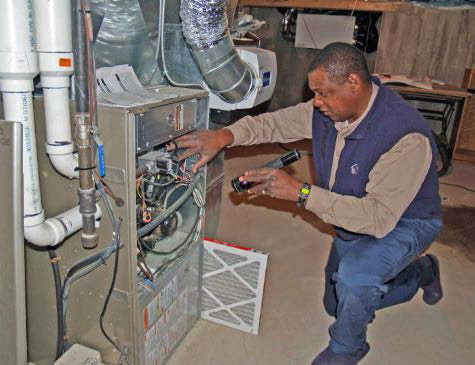While preparing an offer to purchase a property in the Niagara Region, most offers will include conditions for the purpose of meeting the buyer’s needs and manage risks. Some of you are not sure what is acceptable when timelines are inserted within the offer to meet these conditions. Who decides? Is it the buyer or the seller? Well first of all, if I am working for the buyer, my fiduciary duties lies with the buyer. While preparing the conditions, I focus on what best meets my buyer’s requirements. Can the terms of the conditions be re-negotiated by the seller? Absolutely. The terms of the conditions are negotiable items just as much as the purchase price and the closing date.
Below, I have provided you with an article titled “Include conditions when you submit your offer” to inform you of what options are available when conditions are negotiable for an inspection condition. Keeping you informed. I look forward in assisting you with your real estate needs throughout the Niagara region.
Include conditions when you submit your offer
Before drafting your offer, consider your tolerance for potential repairs and the level of inspection you want.

Photo Credit: The Toronto Star (Jan 16, 2015)
The last time I bought a house I was given 10 days to meet the conditions but this time I was told it was only five days. Is this something we can negotiate?
As a buyer, conditions are there to protect you so it’s a smart idea to include them.
The number of days that a buyer can take to meet or waive conditions is not standard but something you write into your offer to the seller. However, it’s possible that the seller will want to negotiate the number of days that the offer is conditional.
It’s important to be realistic about how long it will take you to deal with the conditions.. For example, do you need to figure out financing? If a home inspection is one of your conditions, how much time is needed to get the inspection done? Are you buying a rural property with additional complexities such as a well, septic system or wood-burning appliances that may need specialized inspections?
It’s equally smart to give yourself enough time to get all the information you need to make a decision. For instance, what happens if the home inspection uncovers unexpected repairs?
A qualified home inspector can identify issues with the major systems in a home, including roofing, foundation, electrical, plumbing, heating, and air conditioning systems that can be evaluated visually or with the use of testing tools.
Before drafting your offer, consider your tolerance for potential repairs.
Work with your registered real estate representative and/or a lawyer to make sure the wording of the home inspection condition, or any other condition included in your offer, captures how the transaction will be handled if issues arise that you would consider as possible “deal breakers.”
Depending on how the condition is worded in your offer, if a home inspection uncovers this type of issue with the home, you may have several options to consider.
A few of those options could include:
You may choose to not remove/waive the condition and walk away from the transaction.
If you want the home, but don’t want to deal with the repairs, you may try to ask the sellers to complete the fixes before closing. Get any such commitments in writing and include provisions for what happens if the repairs aren’t done.
You could ask for a price reduction so that you can complete or oversee the repairs after the deal closes.
Remember, there is no obligation for the sellers to agree to these. Discuss the approach that works best for you with your real estate agent. It’s also a good idea to consult your real estate lawyer before exercising these options.
While finding unexpected issues with your otherwise “dream home” may be upsetting, the information will go a long way in helping you make an informed buying decision.
Joseph Richer is registrar of the Real Estate Council of Ontario (RECO). He oversees and enforces all rules governing real estate professionals in Ontario. Email questions to askjoe@reco.on.ca. Find more tips at reco.on.ca, follow on Twitter @RECOhelps or on YouTube at http://www.youtube.com/RECOhelps.




